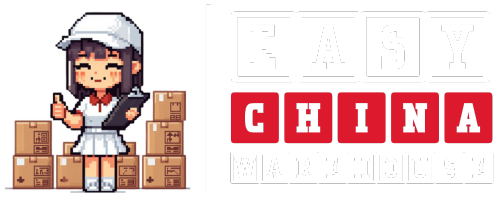Login
How to Import from China to Italy

Importing goods from China to Italy has become a strategic move for many cross-border e-commerce sellers, manufacturing companies, and retailers looking to scale their operations and reduce sourcing costs. Whether you’re selling on Amazon, Walmart, Shopify, or running your own retail business, understanding the logistics, regulations, and best practices of international shipping is crucial for success.
In this guide, we’ll walk you through the essential steps to import from China to Italy, while also sharing tips to streamline your supply chain and avoid common pitfalls.
Understand the Import Regulations in Italy
Before placing an order with a Chinese supplier, it’s important to familiarize yourself with Italy’s import regulations. Italy, as a member of the European Union, follows EU customs laws. This means:
- Customs Duties and VAT: Goods imported into Italy are subject to customs duties and a Value Added Tax (VAT), typically 22%. The exact rate depends on the product category (HS code).
- CE Certification: Many products, especially electronics and toys, require CE marking to be legally sold in the EU.
- EORI Number: Businesses importing into the EU must have an Economic Operators Registration and Identification (EORI) number.
💡 Tip: Work with a customs broker or freight forwarder familiar with EU regulations to ensure compliance and avoid delays.
Choose the Right Supplier in China
Finding a reliable supplier is the foundation of a successful import business. Platforms like Alibaba, Made-in-China, and Global Sources are popular for sourcing products. When evaluating suppliers:
- Request product samples
- Verify business licenses and certifications
- Check reviews and transaction history
- Negotiate Incoterms (e.g., FOB, EXW, CIF)
For long-term success, consider building a relationship with a supplier who understands your quality standards and shipping preferences.
Select the Best Shipping Method
Shipping from China to Italy can be done via air freight, sea freight, rail freight, or express courier. The best option depends on your budget, delivery timeline, and product type.
- Air Freight: Fast (5–10 days), ideal for high-value or time-sensitive goods.
- Sea Freight: Cost-effective for bulk shipments, but slower (30–45 days).
- Rail Freight: A middle ground between air and sea, with moderate cost and transit time.
- Express Courier (DHL, FedEx, UPS): Best for small parcels and samples.
📦 For e-commerce sellers, using a China-based fulfillment center like Easy China Warehouse can simplify logistics by consolidating shipments and managing last-mile delivery.
Prepare the Required Documentation
To ensure smooth customs clearance, make sure you have the following documents:
- Commercial Invoice
- Packing List
- Bill of Lading or Air Waybill
- Certificate of Origin (if applicable)
- CE Certificate (for regulated products)
Accurate documentation helps avoid customs delays and penalties.
Work with a Trusted Freight Forwarder or 3PL Partner
Partnering with a logistics provider experienced in China-to-Europe shipping can save you time and money. A good freight forwarder will:
- Handle customs clearance
- Offer door-to-door delivery
- Provide real-time tracking
- Consolidate shipments to reduce costs
At Easy China Warehouse, we specialize in helping e-commerce sellers and businesses manage their supply chain from China to international markets like Italy. Our team ensures your goods are shipped efficiently, safely, and in compliance with all regulations.
Optimize for Cost and Efficiency
To stay competitive in the global market, consider these strategies:
- Bulk shipping to reduce per-unit costs
- Inventory forecasting to avoid stockouts or overstocking
- Using bonded warehouses in Europe to defer VAT payments
- Automating order fulfillment for faster delivery
Final Thoughts
Importing from China to Italy can be a game-changer for your business if done right. By understanding the legal requirements, choosing the right partners, and optimizing your logistics, you can scale your operations and increase profitability.
Need Help with Your Shipment from China?
If you have any questions or need assistance with your logistics shipment from China, please don’t hesitate to reach out to us. We are committed to providing the support you need to grow your business with confidence.
